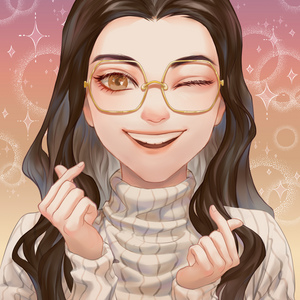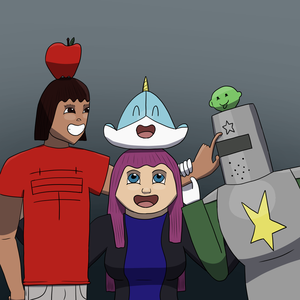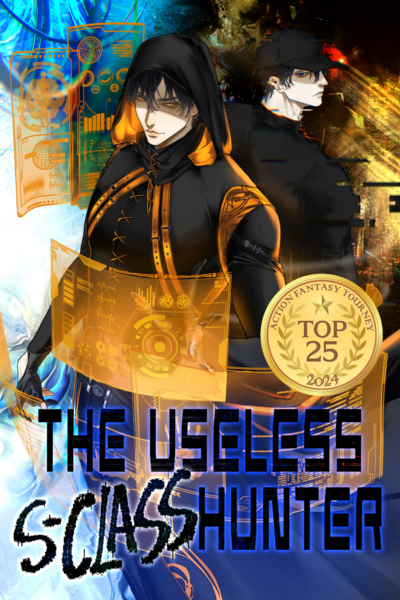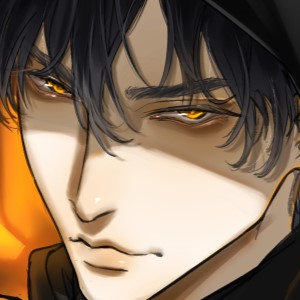Zig
Oct 11, 2024
The thing about being orphaned, Atlas came to learn early on, was that people could pity you and simultaneously do absolutely nothing about it.
It hadn’t really mattered to him much at first what people thought. He hadn’t wanted a new family, and resented the idea that he ever would, so he minded his own business and stayed in the back room when people came to visit.
But the agonizing wails of the younger children, and the persistent dirt and sadness marring every last inch of that place wore him down. And a year in, brow-beaten and tired, he’d decided maybe it wouldn’t be so bad to live somewhere quiet and clean.
It was worth sacrificing just a little bit of pride for. It was a resource in short supply, but he would make the call. He could build it back later, when the winter wasn't so cold it bit, and the rooms weren't impossible to get privacy in.
Atlas was confident he could get what he wanted, now that he'd finally decided.
How hard could it be, after all? These people wanted a kid, and he was a kid. It was easy.
So he had gotten excited, the first few times he made an effort, and the orphanage visitors looked at him with something sad and regretful behind their eyes. He thought that it meant they would do something. That they would see his misery, and his ragged clothes, and save him.
He couldn’t have been more wrong.
That optimism had been bled out of him, one prospective visit at a time. Atlas was too old, too awkward, too angry by the time he’d lost his parents. No one could be bothered to mend what had already been broken.
He’d never find a family with and attitude like that. That was what everyone told him.
Kids like Atlas didn’t get second chances. No matter how much they wanted them.
So he’d given up, more jaded than before, and twice as angry.
It had only gotten worse after that.
He wasn’t gentle or fun enough to be popular enough among the other children, now that he’d had his meager dreams crushed. So he spent his hours toiling away in the orphanage’s shitty kitchen, earning a pitiable wage from the staff so he could afford the bootleg cigarettes he bought off of kids at school when he couldn’t get them mopping up under the table at the bodega down the road.
It was stupid, and unhealthy, and he was going to ruin his lungs before he could even legally drink.
No one cared. Including him.
Then he met Zig.
Of all the terrible, tragic parts of Atlas’ childhood, Sigvard Abene was one of just a handful of things he didn’t regret.
Zig had come on one of those awful visits to the orphanage, this time from a donor family. Atlas had meant to steer clear, but he was pulled in last minute to help corral the younger kids.
Atlas saw the Abenes and hated them instantly. He knew their kind well. They were moneyed, and polite, and brought their brats by to show them how much “worse” others had it so that they’d stop being dipshits and follow the rules.
Except when Atlas had made some long-since-forgotten, snide remark to Zig’s face, Zig had knocked him to the ground cold.
He had almost broken Atlas’ nose. The blood had gone everywhere. He’d ruined Atlas' best shirt.
Izar had held him back with hushed, angry words after that, but for someone like Atlas, he preferred people that didn’t lie to his face and pretend like everything was okay.
He was sure his smile had been horrifying.
But Zig was a kindred spirit, so he didn’t mind.
They’d become fast friends, after that. Vulgar, and mean-spirited and honest with each other.
Zig would wait for him outside the orphanage gates, hat flipped back, uniform definitely not up to code, and they’d walk most of the way to their neighboring schools, shooting the shit and showing up late to class.
And while the Abenes never formally adopted him, they made sure he was alright. Mrs. Abene nagged him about smoking, and got him new things for his bunk. And Mr. Abene gave him birthday gifts and let him visit every Christmas for dinner and gifts.
Izar warmed to him, in time. He’d sometimes walk with the two of them, lecturing them about taking school seriously.
Atlas graduated just barely, and got his job at the convenience store, and some shitty apartment by the water. The Abenes helped him move in, and set up his utilities, and frowned when they found mold on the windows.
Things were okay. They were stable. He was unhappy, but only just.
Then everything had fallen apart.
The Great Collapse had swallowed the Abenes’ car. A freak incident. They were there, one moment, and then the next Izar and Zig were orphans too.
Atlas was too numb to be angry, then. It was all moving so fast. He’d just waited to be the next casualty, that one cold night on his stairs.
Except Zig texted him the next morning. It had only been a few words, but Atlas knew he couldn’t let himself die. Not yet. Not when his best and only real friend was falling apart.
[I need you. I don’t know what I’m doing.]
So Atlas lived. And Zig would still meet him at the bottom of the stairs, his hat flipped back, and walk him to work.
___
Ace came back to the penthouse that night.
Atlas didn’t know much about him, so he wasn’t exactly thrilled about it, but it was fine. Where Senka was silent and almost invisible, Ace was loud and clumsy and vocal.
He’d wandered through the door, still covered in gauze for the fresh skin beneath his wounds, and stared open mouthed at Atlas.
“You’re already here?” He asked, voice high.
God, he was just a kid. Nineteen, at most, with a shock of electric blue hair and deepset brown eyes. He was so tall that he had to duck when he came in through the door.
Atlas glanced over from his spot on one of the couches, where he’d been fiddling with the cell phone Zig got him. It was the newest model he’d ever had, and impossible to understand. “Yeah. They move fast.”
“I would’ve thought…since the others…” Ace cut himself off, scrubbing his eyes with the back of his hand. “Do you know anything about Charon? They wouldn’t tell me.”
“Still inpatient, last I knew.” Atlas peered over the top of his screen. “Senka’s upstairs if you need her.”
“Right.”
But Ace made no motion to move, just sort of swaying absently in the corridor.
“You can sit down if you want.”
Ace meandered over, seeming a little lost. He reminded Atlas of the younger kids at the orphanage, grasping blindly for a safe port in the storm. “Sorry. I just…I don’t want to walk by their rooms. Not yet.”
Of course he didn’t. Normal people were affected by things like death. Normal people didn’t move on, numb to the awful things people did to one another.
“It’s fine.” Atlas looked away from Ace, and back at his messages. “I’m Atlas. I don’t want to assume you know who I am.”
“Of course I know who you are.”
He glanced up, startled, and Ace was beaming. “You were one of the first awakened S-Classes in the world! I read all about you. I was so excited when I saw you.” But Ace’s eyes clouded, and he looked down at his hands. “Well, before…you know.”
What had been so exciting about seeing someone useless like Atlas?
“Don’t get your hopes up,” he said. It sounded meaner than he meant it to. “I’m not someone you should be looking up to. I’m only here because they were desperate.”
“Right.” But Ace sounded sad, and it made the part of Atlas that hadn’t shriveled ache, just a little.
“It’s not…” He pinched his temples. “Sorry. I’m just annoyed at Izar and the Guild President, not you. Don’t…take it personally.”
“You know Mr. Abene, don’t you?!” The same cheerful voice was back. Apparently Ace didn’t hold onto grudges. “He told me he’s known you since you were kids!”
“His parents donated to my orphanage,” Atlas muttered. When was he going to get tired of this? Atlas wasn’t interesting. He never had been.
“I was an orphan too!”
Atlas snorted, and Ace looked at him quizzically. Atlas waved him off. “I’ve never heard someone so happy to be an orphan. Sorry.”
“Oh. I mean, my parents died when I was really young. So I don’t really remember them. And my orphanage was nice. I had a lot of friends, and they treated us well.” Ace tilted his head. The utter lack of malice made Atlas feel recklessly kind. “Was yours not?”
“Ace.”
Senka’s voice was flat but firm. Ace jumped a little, then scratched the side of his head. “Sorry, Sen. I uh…got a little excited.”
Atlas hummed. “It’s fine. It’s nothing I haven’t heard before.”
He stood and pocketed his phone, gesturing for Ace to follow him. “Come on. I’ll walk you upstairs. Show me where I can find you if I need something.”
And maybe it wouldn’t last, and maybe he’d disappointed this person too, but for just a moment it was nice to think that maybe someone like him could matter to someone who was kinder than he was.
AKG
Creator
#Tapas_AF_Tourney
Narwhal
Top comment
Awww it's nice that Ace is cheerful and not an ass. Hope they can be friends 🍿🍋🟩
Recommendation for you
The Useless S-Class Hunter
23.8k views509 subscribers
Atlas Cane is useless. He's famous for it, actually.
Or he was, until the new portals killed half of world-famous team Last Bastion, and Atlas' true skill awakened in the aftermath.
Atlas Cane was supposed to be useless.
He's not. Not anymore.
Banner/Cover/Thumbnail Art: NOREI
Or he was, until the new portals killed half of world-famous team Last Bastion, and Atlas' true skill awakened in the aftermath.
Atlas Cane was supposed to be useless.
He's not. Not anymore.
Banner/Cover/Thumbnail Art: NOREI













Comments (2)
See all